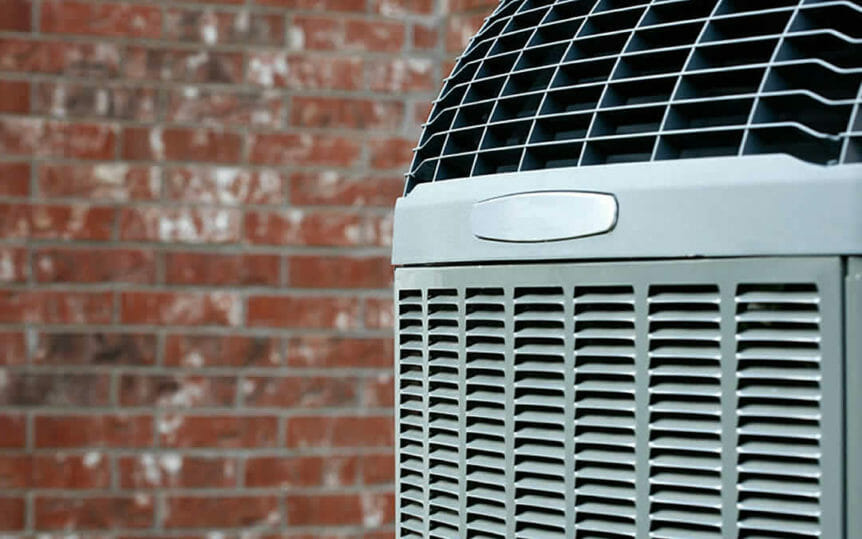
Does Your AC Unit Take A Long Time To Start? Check Your AC Capacitor!
Sometimes, we need a little extra help getting started. Getting out of bed on Monday morning is tough until a cup of hot coffee gets us moving a little faster. Even your air conditioning needs a little jolt sometimes. The amount of energy your AC unit uses depends on its make, model and age and the size of your home. But something that all units have in common is that they use a surge of energy during start up. And this boost of energy comes from something called a capacitor.
What is a AC Capacitor?
In order for your ac unit to start cooling down your house, it must turn on the fan motor and compressor. The compressor circulates refrigerant in the system under pressure and is basically responsible for making cold air. And the motor helps to force the cold air through your system into your home. But without the capacitor, neither the fan nor the compressor would be able to start.
“The capacitor is basically an energy storage device. A car can’t start up without a battery, and most compressor and fan motor can’t start up without a capacitor,” said John Moore Services HVAC Coach Lewis Yancey. “They need an extra boost of energy to start up, and the capacitor stores that energy and gives it to both the compressor and the fan motor. But as soon as they start up, the capacitor turns off and starts to store energy all over again.”
In a car, once the engine starts the battery has no purpose, because the car actually runs by using the alternator. It’s the same with a capacitor. Its sole purpose is to provide a force of energy to start the unit. And once the unit is on, the capacitor starts all over with the energy-storing process.
Do Capacitors go bad on your AC Unit?
There are many different sizes of capacitors available, and every capacitor has a rating of how much energy it can store. This rating is equivalent to volts, and is called microfarad. They can range anywhere from 5 microfarad to 80, which all depends on the size, make, and model of your unit. There are even dual capacitors, which have two ratings, a major and a minor. The major rating starts the compressor because it uses the most energy, and the minor rating starts the fan motor.
“All capacitors have ratings, and these ratings are set by the manufacturer. For most capacitors, when the rating drops 6% below the manufacturers recommendation then it is time to get it replaced,” said Yancey. “It is impossible to tell exactly when the capacitor will go out, and there are no signs that a homeowner can see or listen for. The only thing you can do, is have a professional come out and get a reading of its current voltage with a special meter. We suggest that when it drops 6% below its recommended voltage then it’s time for replacement. There is no way for us to tell how long the capacitor will last if it’s not replaced. It could last 2 days or it could last a year. But having a significant drop in rating is an indicator that it is going bad and will not continue to work properly.”
And when the capacitor goes out for good you will know because your unit will stop working all together. But before it stops completely, a dying capacitor will pull more electricity and energy from your home to start up your AC system. And this excess pull of energy will cause your electric bill to be higher than usual.
How often should I have my capacitor checked?
Having a capacitor that is working in good condition and that is at the correct voltage is important because it not only affects your AC unit but will also cause make your monthly bills higher. The only way to prevent this from happening is to have it checked twice a year.
“The thing with capacitors is you won’t know if they are going bad unless you get a professional to come look at it,” said Yancey. “You could be paying a lot more monthly than you have to because of the simple fact that your capacitor needs to be replaced.”
At John Moore Services we believe in the importance of continual maintenance and know it can save you lots of money. That’s why we include a capacitor check in our regular fall heater checkup and spring AC Tune-up. So if you are signed up for our Home Maintenance Plan then you have nothing to worry about. But if you have not had your system checked in a while, then it’s time to call the professionals. We have a staff of expert HVAC technicians who can diagnose and fix all problems. Give us a call today so you can save money this summer!
